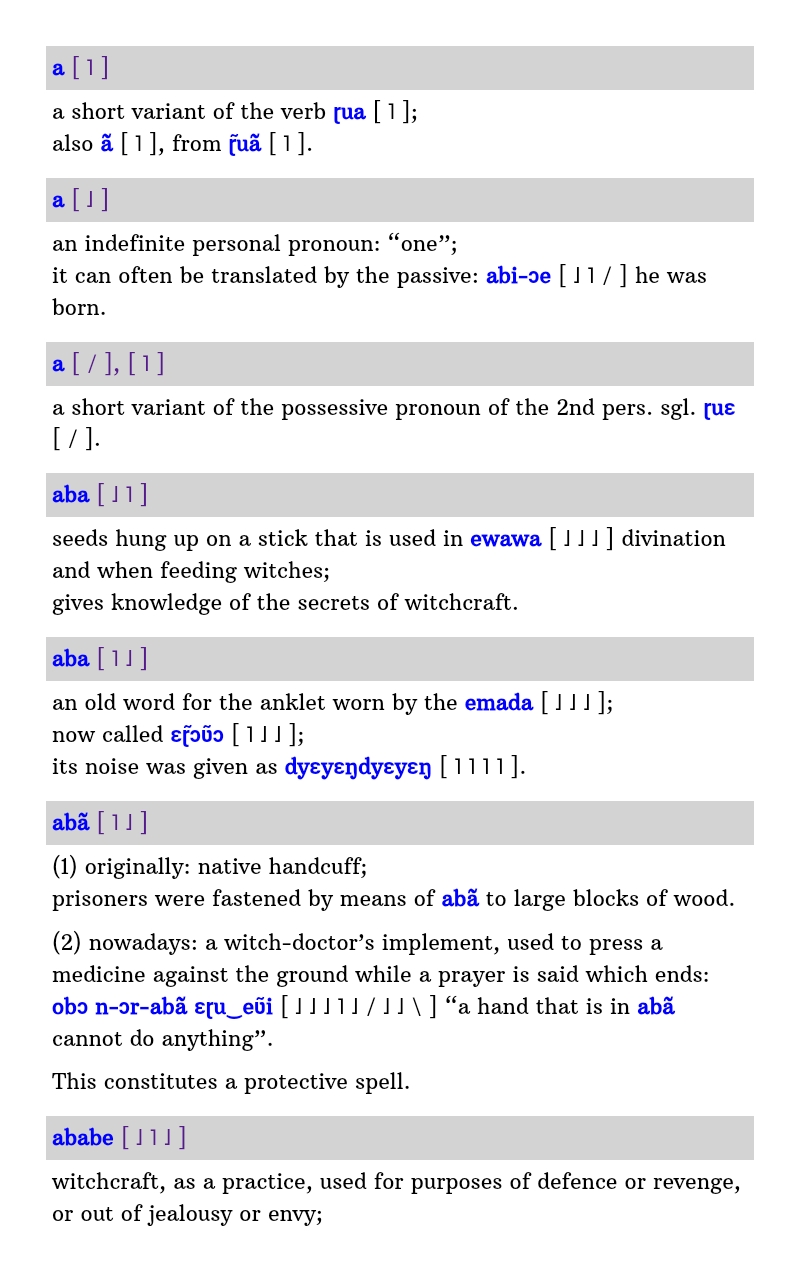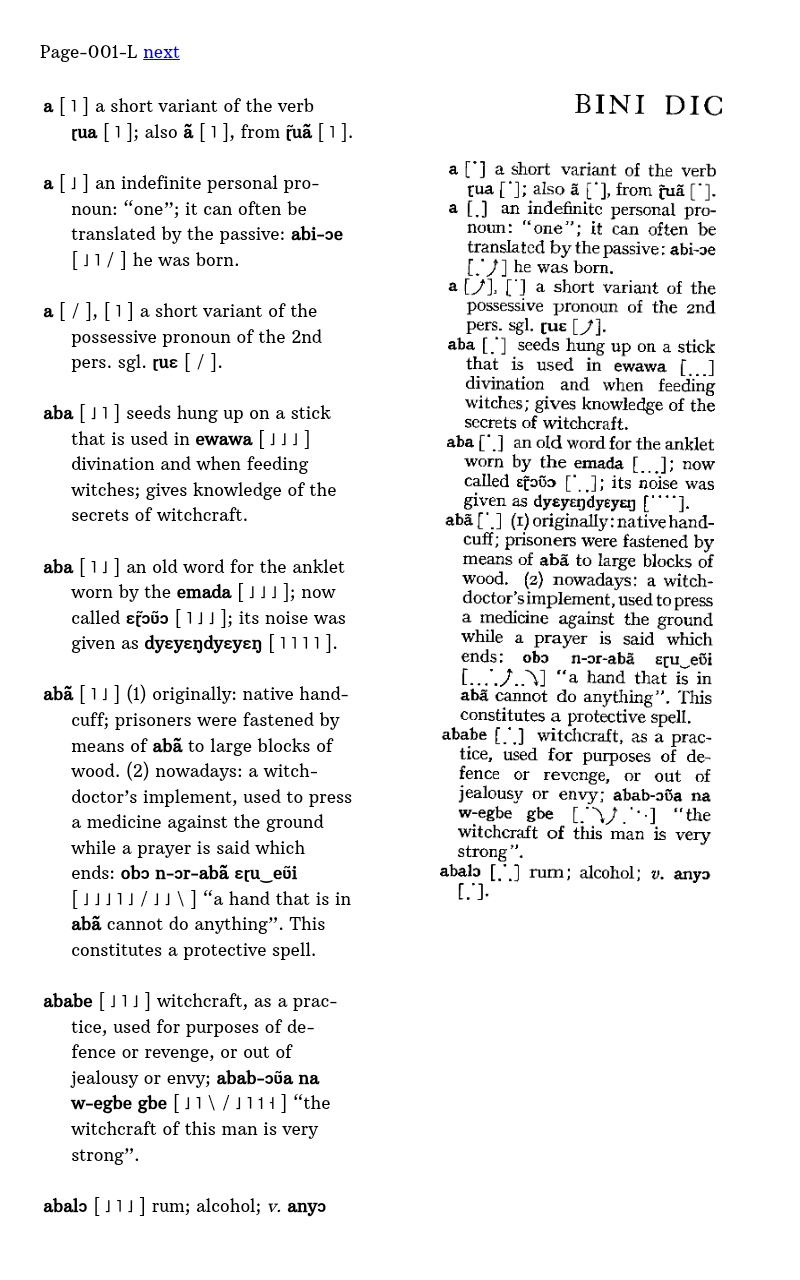
This epub book contains a digital version of Hans Melzian's book:
An epub book is a zip-file containing html-files and other files organized in a standard way. This zip-file can be unzipped with any zip-program (after renaming the 'epub' extension to 'zip', if necessary) to access files that may not be accessible through the epub-reader.
For example, the additional material contains pdf-files that may not be accessible through the epub-reader, but they can be extracted with a zip-program. The epub file contains also the masterfiles from which the other formats have been generated. In addition there is a light version of the dictionary (627.0 kB) that contains only the digitized dictionary without the scanned pages.
Edo (Bini) is the language spoken in and around Benin City in Southern Nigeria. Melzian's dictionary is the first Edo-English dictionary. It is based on previous work, mainly wordlists, discussed by Melzian in his book.
Two other Edo-English dictionaries have since been published:
There are no English-Edo or monolingual Edo dictionaries. Only an English-Edo wordlist based on Melzian's dictionary has been published:
Melzian's book contains the following parts:
For the introductory parts (pages i-xvi) there is one html-page for each page in the book.
The LIST OF ADDENDA and the BINI DICTIONARY contain the dictionary entries organized in two columns. The LIST OF ADDENDA has been digitized in one html-page. For the BINI DICTIONARY there is one html-page for each letter of the Edo alphabet.
The dictionary entries have been reformated using some heuristic rules as shown in the following picture (Lithium epub-reader):

The grey area for an entry word is a link to the column in the book containing the entry as shown in the following picture:

On the right is a scan of the column, on the left the digitized text. This digitized text is identical to the text in the previous picture except for words that have been hyphenized at the end of a column line (ex. 'pro-noun' and 'pronoun' in the second entry). Both text have been generated from common masterfiles which contain the dictionary entries in a 'raw' format. This presentation allows to easily verify the digitized text.
Melzian's dictionary contains a number of special characters such as 'ŋ Ɔ Ɛ ɔ ɛ ɣ ɽ ʃ ʋ ʒ'. These have been encoded using UTF-8 UNICODE. Tonal markings are represented in the digital text by '˥ ˦ ˧ ˨ ˩'.
Not all browsers can display the UNICODE characters in the dictionary correctly. In particular the UNICODE characters for the tone markers are incorrectly displayed in many readers or browsers.
The following table lists all special characters in the dictionary:
The correct display is:
The following picture shows the correct display for some words (page-049-L):
There are apparently no UNICODE characters for the arrows in the dictionary that indicate a shift in tone-level. An arrow starts at one tone-level and ends at another. There are five tone-levels. An arrow then can be represented by a couple (n-m) where n and m are numbers from 1 to 5. In the picture above there is a (2-1) arrow: a shift from the second lowest tone to the lowest tone. The most frequent arrows are (1-5) and (5-1). These are represented by the characters / and \ respectively.